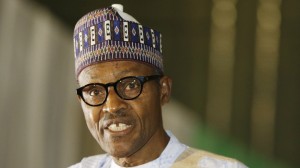


The Nigerian delegation to the 42nd annual meeting of the just-ended Islamic Development Bank had during a business meeting with the IsDBG Vice-President for Operations, Nigeria’s former Minister for Finance, Dr. Mansur Muhtar, urged the Bank to fast-track the implementation of ongoing projects being funded by the Bank in the country.
Similarly, Nigeria called on the Bank to conclude preparations and commence the implementation of pending projects approved by the Bank. .
Permanent Secretary in the Federal Ministry of Finance, Dr. Mahmoud Isa-Dutse who led the delegation as representative of the Minister of Finance, Mrs. Kemi Adeosun, described the meeting as fruitful, where the position of the country was explained and mutual understanding reached between both sides.
While expressing appreciation for the support and cooperation Nigeria is receiving from the Bank, the Permanent Secretary reminded the Bank of the request made by President Muhammadu Buhari in 2016 to harness efforts and resources for the reconstruction and recovery of the North East in collaboration with the World Bank and the African Development Bank.
The Islamic Development Bank has provided loan facilities for a number of on-going projects in some States of the Federation, including the construction and equipping of four science secondary schools in Osun State and water supply projects in Zaria and Ilesha, among others.
Nigeria and the Bank are negotiating financing for the construction of the Second Niger Bridge on the Private Public Partnership (PPP) model.
The delegation sought the extension of intervention by the Bank to include financing for energy and road construction projects under its Private-Public Partnership scheme.
The Islamic Corporation for the Development of the Private Sector (ICD), a subsidiary of the Bank, is involved in corporate and infrastructure financing for innovation, job creation and access to clean energy, affordable housing, quality education and health care in member-countries through PPP.
It equally engages in financing individuals and Small and Medium Enterprises (SMEs) for private sector development, creation of new jobs, access to affordable housing and agribusiness development.
Meanwhile, Nigeria, the fourth largest shareholder in the 57-nation Islamic Development Bank Group (IsDBG), has been allocated the sum of US$296, 143 as dividend from the profit earned by the Islamic Corporation for the Development of the Private Sector (ICD) in 2016, but would be converted into shares.
The document containing the resolutions of the 42nd annual meeting of the Board of Governors of the Bank released to the public, indicates that US$16, 083, 362 million worth in shares shall be allocated from the unallocated shares to member-countries as their dividend .
Nigeria’s overall shareholding in the IsDB Group is 1.68 per cent, surpassed so far only by the shareholdings of Saudi Arabia, Kuwait, Libya and the Islamic Republic of Iran. The least shareholding member of the Bank is Kyrgyz Republic with 643 units, which was classified as 0.00 per cent on the shareholding table of the Jeddah-based financial institution.
The resolutions further indicate that public Financial Institutions that own shares in ICD would receive dividend payments in cash to the tune of US$1, 564, 000 million payable within three months from the date of the resolution.
As the 42nd IsDBG ends, African countries have clinched four positions of Executive Directors of the IsDB and would serve from January 1, 2018 to December 31, 2020.
Those elected to the Board are Mr. Twesiim Frederic of the Republic of Uganda; Abdoulie Jallow from the Republic of Gambia; Mr. Diao Balde of the Republic of Guinea and the only woman elected to the Board, Mrs. Fouzia Zaaboul of the Kingdom of Jordan.






